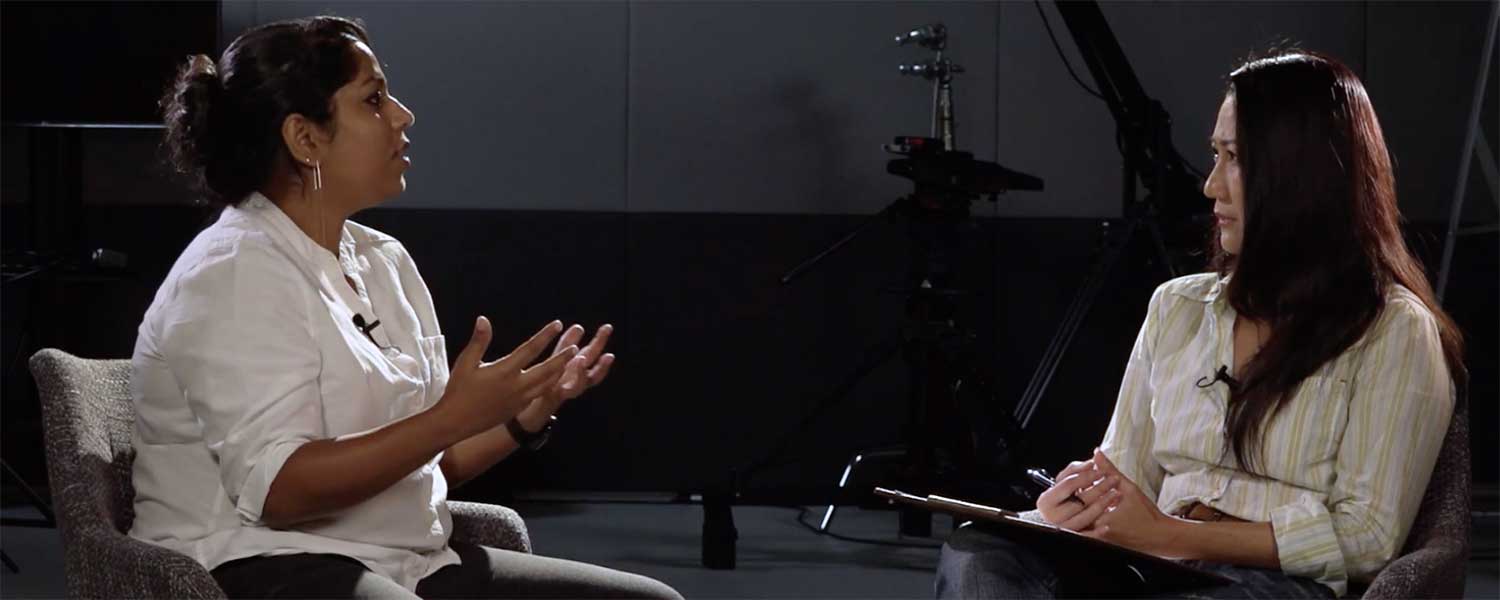Today, a person can apply for a Personal Protection Order (PPO) under the Women’s Charter, but this would only be applicable against a family member (that is to say a spouse, parent or sibling). For all other relationships, one can rely on protection orders under POHA.
However, there are a few key differences between the POHA and the PPO. A PPO can be filed by an individual without the assistance of a legal representative. On the other hand, an application for a POHA order needs to be done so through a lawyer. Another important distinction is that the breach of a POHA order is not an arrestable offence while in the breach of a PPO, the police can step in to maintain law order.
We spoke with actress / producer Debra Teng, who also spearheads the movement “Under The Carpet: #metoo ”, an online talk show series that looks at the topic of Sexual Harassment and Assault from perspectives of survivors, corporate executives, mother and AWARE Singapore, with the hope to raise awareness on sexual harassment, violence and abuse.
“It is good that the law is turning its attention to unmarried couples. Abuse and violence, whether emotional or sexual, can take place in any kind of relationship.”
Debra hopes to see four other areas where Protection from Harassment Act in Singapore, or simply the POHA and other related law and policy, can be sharpened.
1) Additional training for enforcement personnel as first respondents to victims of harassment, assault and violence
Sensitivity, empathy, tact and care need to be applied to people seeking help from enforcement persons. There have been instances where victims felt that they were not taken seriously because they may not have exhibited behaviours that law enforcement deem “typical” of assault victims.
Every case should be investigated thoroughly.
“Often not, lawyers also double up as a counsellor when representing these victims. It is prudent that lawyers are able to guide these victims through the legal process carefully whilst balancing the victims’ emotions.” said Cherie Tan, a lawyer from IRB Law.
2) Protection for whistleblowers
Debra highlights the importance of whistleblowers in cases of domestic violence. It takes great effort for a woman to go to the police or a lawyer for help. Studies show that as many as 3 out of 4 sexual assault cases go unreported. Oftentimes the assailant is someone whom is in a close relationship with the victim, because of this the victim does not want to bring harm to this person.
“I have this friend who acted on behalf of her friend and it later turned out she (the whistleblower) became the target of the assailant when he found out.”
MSF’s “Break the Silence” campaign is a cheerful move. With stronger policies and legislation that encourage and protect those whom are helping their friends, more will be motivated to do so.
3) Requiring female staff and/or training as part of liquor licensing
Pubs, clubs and places where alcohol is served is fertile ground for harassment to occur. Many places are ill equipped to deal with this. Debra suggests to make hiring of female staff and/or training on how to deal with harassment to form part of the conditions required for a liquor licence.
Today, the conditions only require that the licensee shall not permit “drunkenness, disorderly conduct or gambling in his premises” but there is nothing that will make the proprietor responsible for the safety of his patrons. (https://www.police.gov.sg/e-services/apply/licenses-and-permits/liquor-licence)
4) All-of-Government approach
Tackling the problem of abuse is not a matter of criminal justice alone. It involves concerted co-operative efforts from Ministries of Education, Manpower, Home Affairs and Social and Family Development to change the discourse around how men and women socialise and work together. The job cannot rest solely on just one or two government agencies.
Debra continues to believe in the good of mankind. That the reason why abuse and violence happens is the result of the environment one is raised in.
“We need to examine the root cause (of domestic violence). I don’t believe people are born evil. I believe circumstances and conditions cause people to behave in ways that are hurtful and unkind. While the victims certainly need to be protected, I think the perpetrators need even more help, therapy and counselling.”
Conclusion
In conclusion, abuse and violence continue to be pressing issues in Singapore that demand our immediate attention and action. It is disheartening to acknowledge that these problems persist in our society, affecting the well-being and safety of individuals. However, we must not lose hope and instead come together to address this deeply rooted problem. If you or anyone you know has been abused or harassed, it is important to speak up. Together, we can work towards building a future where abuse and violence are eradicated, and every individual can live a life free from fear and harm.
Frequently Asked Questions
Q: What can I do if I am being harassed, abused, or violated?
A; If you are being harassed, abused, or violated, there are a number of things you can do:
- Talk to someone you trust, such as a friend, family member, or therapist.
- Report the abuse to the authorities.
- Seek legal help.
- There are also a number of support groups and resources available to help you cope with harassment, abuse, and violence.
Q: Where can I get help if I am being harassed, abused, or violated?
A: There are a number of places where you can get help if you are being harassed, abused, or violated. These include:
- The National Anti-Violence & Sexual Harassment Helpline: 1800-777-0000
- The Singapore Police Force: 999
- The Family Justice Courts: 6438 2222
- The Ministry of Social and Family Development: 6438 2222
About Under The Carpet
Under The Carpet is an online talk show that explores topics that affect people deeply but are difficult to talk about. You may view their episodes on their YouTube Channel: Manta Pictures, and follow their Facebook page.



